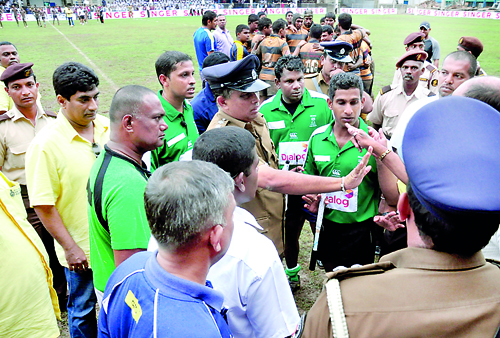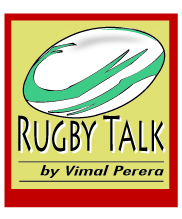It is not illegal until the referee sees it
View(s):Whatever the level of the game from community rugby to the elite world cup rugby is a thrilling game. It is a game of passion, full of action and drama on the field: making sense of it can be intimidating. While the cornerstones of the game epitomises, integrity, passion, solidarity, discipline and respect; getting the better on the policing on field is a common occurrence. The history of taking the better of the man in the middle in rugby has more commonly thought as a risk reward equation. “It is not illegal until the referee sees it”. Despite the support for the referee and the game televised and viewed broadly the effort to get the better of the official is a common thing as in the past. In the past the maul and ruck were always places where smart players slow down the ball, collapsed and frustrated their opposition with some innovative play. The same continues despite the laws being tougher to make the game flow as well as for players to be safe.

The number of cases, where rugby referees’ decisions have been challenged, have increased immensely off late. - File pic
The line out laws changed allowing lifting and support hopefully that the pandemonium at which was like a street fight could be stopped. Lifting was illegal in the past and punishable with a penalty. Players either worked out how to make it look like they were not lifting or disturbed the opposition in their jump. To the referees it was a difficult task as two eyes were watching twenty players. Sixteen forwards, two receivers and a thrower and his opposite number. The players got away with a lot as the referee did not see it. The law in the literally sense looked an ass as the difficulty in policing the lift it was used as an advantage to cheat. The laws changed and allowed lifting and supporting hoping that will sanitise this phase of the game. The changed laws requires a jumper to have a good lifter and soar to a height defying gravity. The cunning still had a field day as even though there was absolutely no stopping of the jumper. Still you get someone to fill gaps and find space or offer shoulders and or arms, to protect and elevate in a way that drew no suspicion.
Deceit combined with perfect execution can make a player soar into the air breaking from the bunch below to claim the ball. For a moment it would seem as if the rules of gravity, and rugby, had ceased to function. It takes place the world over and we try it back home and got to live with while the concept of fair contest is lost.
If you think this happens only at a ruck, maul or lineout you are mistaken as when they get away in one area their illegality will be tried elsewhere. Take the case of a centre heading to opposition players after a switch: he suddenly finds a hole created by a team-mate who nudges or bumps an opponent. These happen and unlike the punch or the acts of violence that were often punished become the trademarks of players who had thought about the game, understood the needs of their teams, weighed the risks and taken a gamble.
Take the case of a tackle as a player passes the ball. The tackler holds on to the tackled player preventing him from going to support after the pass is executed. The referee and assistant referee move on with the ball and the well trained will go keeping an opposite  number off the game. Is it a skill or well managed cheating. We all look at a tackler not releasing or the tackled player not making the ball available. Why not look at a tackle as the ball changes hands and he is trapped; held by a foot and play moves on. That hold for a moment of time prevents a loop and or support. Then what happens is that the tackled player in frustration of being held swings a punch and gets caught and is given a yellow.
number off the game. Is it a skill or well managed cheating. We all look at a tackler not releasing or the tackled player not making the ball available. Why not look at a tackle as the ball changes hands and he is trapped; held by a foot and play moves on. That hold for a moment of time prevents a loop and or support. Then what happens is that the tackled player in frustration of being held swings a punch and gets caught and is given a yellow.
Another may be the immobilising of attacking threats out of the game by sitting on his opponent at a crucial time at a break down. The annoyed man below may throw a punch to get away and will attract the attention of the referee and get punished. Who caused it and is that not cheating? Is it possible to control and the modern game with the laws; however how tough it will as the cheating has been woven into the fabric of the game. There will always be smart and streetwise players who will tug on a shirt or hold onto a leg. This takes place in rugby the world over and you cannot say locals cheat and international players don’t as I have heard as an excuse by some officials with a whistle say. I will put it another way the internationals do it while being disciplined while the locals are not that disciplined at the break down and make many mistakes.
An interesting case of cheating relate to what was known as ‘Blood Gate’ in 2009 when Harlequins faked a blood substituting to get a kicker onto the field for a last minute crucial kick which won them the match. It was subsequently proved that the blood was a fake and there was use of a blood capsule to stimulate a bleeding scene and get around the number of substitutions.
Vimal Perera is a former Rugby Referee, coach and Accredited Referees Evaluator IRB


